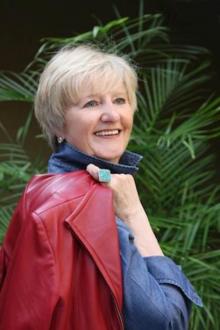- Home
- Diane Capri
Licensed to Thrill: Volume 1
Licensed to Thrill: Volume 1 Read online
Praise for
Bestselling Author
Diane Capri
“Full of thrills and tension, but smart and human, too. Kim Otto is a great, great character. I love her.”
- Lee Child,
#1 New York Times Bestselling Author of Jack Reacher Thrillers
“[A] welcome surprise....[W]orks from the first page to ‘The End’.”
- Larry King
“Swift pacing and ongoing suspense are always present...[L]ikable protagonist who uses her political connections for a good cause...Readers should eagerly anticipate the next [book].”
- Top Pick, Romantic Times
“...offers tense legal drama with courtroom overtones, twisty plot, and loads of Florida atmosphere. Recommended.”
- Library Journal
“[A] fast-paced legal thriller...energetic prose...an appealing heroine...clever and capable supporting cast...[that will] keep readers waiting for the next [book].”
- Publishers Weekly
“Expertise shines on every page.”
- Margaret Maron,
Edgar, Anthony, Agatha and Macavity Award Winning MWA Past President
Also by DIANE CAPRI
Jess Kimball Series:
Fatal Distraction
Fatal Enemy (short story)
Hunt for Reacher Series:
Get Back Jack
Don’t Know Jack
Jack in a Box (short story)
Jack and Kill (short story)
Justice Series:
Due Justice
Twisted Justice
Secret Justice
Wasted Justice
Raw Justice
Mistaken Justice (short story)
For Robert
CAST OF PRIMARY CHARACTERS
Kim L. Otto
Carlos M. Gaspar
Charles Cooper
Lamont Finlay
Beverly Roscoe
Jacqueline Roscoe
Sylvia Black
Harry Black
Michael Hale
Marion Wallace
Archie Leach
Jim Leach
and
Jack Reacher
Chapter One
Monday, November 1
4:00 a.m.
Detroit, Michigan
JUST THE FACTS. And not many of them, either. Jack Reacher’s file was too stale and too thin to be credible. No human could be as invisible as Reacher appeared to be, whether he was currently above the ground or under it. Either the file had been sanitized, or Reacher was the most off-the-grid paranoid Kim Otto had ever heard of.
What had she missed?
At four in the morning the untraceable cell phone had vibrated on her bedside table. She had slept barely a hundred minutes. She cleared her throat, grabbed the phone, flipped it open, swung her legs out of bed, and said, “FBI Special Agent Kim Otto.”
The man said, “I’m sorry to call you so early, Otto.”
She recognized the voice, even though she hadn’t heard it for many years. He was still polite. Still undemanding. He didn’t need to be demanding. His every request was always granted. No one thwarted him in any way for any reason. Ever.
She said, “I was awake.” She was lying, and she knew he knew it, and she knew he didn’t care. He was the boss. And she owed him.
She walked across the bedroom and flipped on the bathroom light. It was harsh. She grimaced at herself in the mirror and splashed cold water on her face. She felt like she’d tossed back a dozen tequila shots last night, and she was glad that she hadn’t.
The voice asked, “Can you be at the airport for the 5:30 flight to Atlanta?”
“Of course.” Kim answered automatically, and set her mind to making it happen.
Showered, dressed, and seated on a plane in ninety minutes? Easy. Her apartment stood ten blocks from the FBI’s Detroit Field Office, where a helicopter waited, ever ready. She picked up her personal cell and began texting the duty pilot to meet her at the helipad in twenty. From the pad to the airport was a quick fifteen. She’d have time to spare.
But as if he could hear her clicking the silent keys, he said, “No helicopter. Keep this under the radar. Until we know what we’re dealing with, that is.”
The direct order surprised her. Too blunt. No wiggle room. Uncharacteristic. Coming from anyone lower down the food chain, the order might have been illegal, too.
“Of course,” Kim said again. “I understand. Under the radar. No problem.” She hit the delete button on the half-finished text. He hadn’t said undercover.
The FBI operated in the glare of every possible spotlight. Keeping something under the radar added layers of complication. Under the radar meant no official recognition. No help, either. Off the books. She didn’t have to hide, but she’d need to be careful what she revealed and to whom. Agents died during operations under the radar. Careers were killed there, too. So Otto heeded her internal warning system and placed herself on security alert, level red. She didn’t ask to whom she’d report because she already knew. He wouldn’t have called her directly if he intended her to report through normal channels. Instead, she turned her mind to solving the problem at hand.
How could she possibly make a commercial flight scheduled to depart–she glanced at the bedside clock–in eighty-nine minutes? There was no reliable subway or other public transportation in the Motor City. A car was the only option, through traffic and construction. Most days it took ninety minutes door to door, just to reach the airport.
She now had eighty-eight.
And she was still standing naked in her bathroom.
Only one solution. There was a filthy hot sheets motel three blocks away specializing in hourly racks for prostitutes and drug dealers. Her office handled surveillance of terrorists who stopped there after crossing the Canadian border from Windsor. Gunfire was a nightly occurrence. But a line of cabs always stood outside, engines running, because tips there were good. One of those cabs might get her to the flight on time. She shivered.
“Agent Otto?” His tone was calm. “Can you make it? Or do we need to hold the plane?”
She heard her mother’s voice deep in her reptile brain: When there’s only one choice, it’s the right choice.
“I’ll be out the door in ten minutes,” she told him, staring down her anxiety in the mirror.
“Then I’ll call you back in eleven.”
She waited for dead air. When it came, she grabbed her toothbrush and stepped into shower water pumped directly out of the icy Detroit River. The cold spray warmed her frigid skin.
Seven minutes later, out of breath, heart pounding, she was belted into the back seat of a filthy taxi. The driver was an Arab. She told him she’d pay double if they reached the Delta terminal in under an hour.
“Yes, of course, miss,” he replied, as if the request was standard for his enterprise, which it probably was.
She cracked the window. Petroleum-heavy air hit her face and entered her lungs and chased away the more noxious odors inside the cab. She patted her sweat suit pocket to settle the cell phone more comfortably against her hip.
Twenty past four in the morning, Eastern Daylight Time. Three hours before sunrise. The moon was not bright enough to lighten the blackness, but the street lamps helped. Outbound traffic crawled steadily. Night construction crews would be knocking off in forty minutes. No tie-ups, maybe. God willing.
Before the phone vibrated again three minutes later, she’d twisted her damp black hair into a low chignon, swiped her lashes with mascara and her lips with gloss, dabbed blush on her cheeks, and fastened a black leather watch band onto her left wrist. She needed another few minutes to finish dressing. Instead, she pulled the c
ell from her pocket. While she remained inside the cab, she reasoned, he couldn’t see she was wearing only a sweat suit, clogs, and no underwear.
This time, she didn’t identify herself when she answered and kept her responses brief. Taxi drivers could be exactly what they seemed, but Kim Otto didn’t take unnecessary risks, especially on alert level red.
She took a moment to steady her breathing before she answered calmly, “Yes.”
“Agent Otto?” he asked, to be sure, perhaps.
“Yes, sir.”
“They’ll hold the plane. No boarding pass required. Flash your badge through security. A TSA officer named Kaminsky is expecting you.”
“Yes, sir.” She couldn’t count the number of laws she’d be breaking. The paperwork alone required to justify boarding a flight in the manner he had just ordered would have buried her for days. Then she smiled. No paperwork this time. The idea lightened her mood. She could grow to like under the radar work.
He said, “You need to be at your destination on time. Not later than eleven thirty this morning. Can you make that happen?”
She thought of everything that could go wrong. The possibilities were endless. They both knew she couldn’t avoid them all. Still, she answered, “Yes, sir, of course.”
“You have your laptop?”
“Yes, sir, I do.” She glanced at the case to confirm once more that she hadn’t left it behind when she rushed out of her apartment.
“I’ve sent you an encrypted file. Scrambled signal. Download it now, before you reach monitored airport communication space.”
“Yes, sir.”
There was a short pause, and then he said, “Eleven thirty, remember. Don’t be late.”
She interpreted urgency in his repetition. She said, “Right, sir.” She waited for dead air again before she closed the phone and returned it to her pocket. Then she lifted her Bureau computer from the floor and pressed the power switch. It booted up in fourteen seconds, which was one fewer than the government had spent a lot of money to guarantee.
The computer found the secure satellite, and she downloaded the encrypted file. She moved it to a folder misleadingly labeled Non-work Miscellaneous and closed the laptop. No time to read now. She noticed her foot tapping on the cab’s sticky floor. She couldn’t be late. No excuses.
Late for what?
Chapter Two
AT PRECISELY 5:15 A.M. the cab driver stopped in front of Delta departures at McNamara terminal. Fifty-five minutes, door to door. So far, so good, but she wasn’t on the plane yet.
She paid the driver double in cash, as promised. She ignored the cold November wind and pulled her bags from the car and jogged inside as quickly as she dared. Running made airport officials nervous. Airports were touchy places in America these days, particularly those close to known arrival and departure points for terrorists. Detroit-Wayne Metro had two strategic advantages for the bad guys. Proximity to the Canadian border allowed rapid deployment once they entered the country, and they could easily blend in. Greater Detroit was home to more people of Arabic descent than any city outside the Middle East. Which was the very reason Otto had requested the Detroit deployment: more opportunity for advancement on the front lines.
Right then she thought she would have been better off somewhere else.
She slowed to a walk. There were cameras everywhere. She was under the radar, but she wasn’t invisible.
She approached the checkpoint and looked for her contact. She saw a man with Kaminsky on his nameplate, manning the crew line, putting each crew member through the same screens as the regular passengers. He was focused intently on his work.
Come on, come on, come on.
She willed him to notice her. When he did, she ducked under the rope and walked up to where he stood. She said, “You’re expecting me.”
He said, “Correct.”
He glanced at her credentials and passed her along, with her bags, and her electronics, and her gun, around the outside of the metal detector hoop. Behind her a passenger called out, “Hey! What’s so special about her?”
She thought: Shit. Now someone will remember me if they’re asked, for sure. She didn’t glance back to give the guy another look at her face. She just jogged the last hundred yards to the gate, where another TSA agent waited, blocking the entrance. She flashed her ID. He nodded and stepped aside. The moment she crossed the threshold, he closed and locked the door behind her. She rushed through the tunnel and stepped onto the plane. The flight attendant closed and sealed the door behind her, the jet way retreated, and the plane backed away. The pilot had only a ten-minute delay to cover up.
Should anyone ask.
She found her seat in first class. The seat next to hers was empty, as was the seat across the aisle. Probably not by chance. She stowed her bags and buckled her seatbelt low and tight. She laid her head back and closed her eyes. She gripped the armrests until her fingers hurt.
God, she hated flying.
Experts said fear of flying was irrational. They were fools. Kim knew too much to believe that nonsense. Planes made powerful weapons and they were no match for Mother Nature. And she was in a bad way to start with. The acid in her stomach had boiled up the night before, when the untraceable cell phone had arrived. She unclenched one hand long enough to slide an antacid between her lips. She pressed it with her tongue to the roof of her mouth, and as it dissolved, she tried to calm her racing pulse. She kept her eyes closed until the plane was safely in the air and she could breathe again. She asked for black coffee and opened her laptop to find out why the hell she was headed to Atlanta.
She had two hours and thirty-eight minutes to learn everything she needed to know.
The encrypted file she had downloaded in the taxi was zipped. Inside, she found five separate documents. The first contained a short memo explaining her assignment. The other four files were identified by unfamiliar names: first, Carlos Marco Gaspar; second, Beverly Roscoe (Trent); third, Lamont Finlay, Ph. D.; and fourth, Jack Reacher.
Jack Reacher’s file was the largest, and it ended fifteen years ago. The other three were brief resumes.
She started reading.
The assignment seemed straightforward enough: Complete background investigation on potential candidate Jack-none-Reacher. She’d handled dozens of these since she’d joined the Special Personnel Task Force. But this assignment was different in every respect. There was no indication of the job for which Reacher was being considered. Nor did the assignment memo explain the secrecy, the haste. Or why the boss was involved. Everything about it felt wrong.
She was instructed to begin in Margrave, Georgia. Nothing further.
The second document was brief but normal. It contained limited data on FBI Special Agent Carlos Marco Gaspar, her partner on this assignment. She’d never met Gaspar and the file told her very little about him. He was forty-four years old, married with four children, and he was currently posted to the Miami Field Office.
The only odd note was the explicit direction that she was to take the lead, even though Gaspar was ten years more experienced.
She’d never acted as lead on a SPTF assignment. Was this a test of her leadership ability? Was she being considered for promotion? No. Too soon. What, then? Another secret. She hated secrets unless she was the one keeping them. She popped another antacid and studied Gaspar’s official ID photograph, learning his face. Then she spent the next two hours reading, analyzing, and memorizing the limited information contained in the remaining three files.
The more she read, the less comfortable she became, but she was already on security alert level red, and there were no higher levels in her system.
She began with the candidate. His file was simply too thin. In her line of work, less was definitely not more. Where were Reacher’s tax returns? Credit card files? Property records? Criminal records? Had Reacher never bought a car? Rented an apartment? Owned a cell phone? Surfed the internet? Been arrested? What about banking records? Where did he get his
walking-around money?
There had to be more documentary evidence on Jack-none-Reacher, but she’d been allowed no time to do her own thorough preparation using the extensive tools available to the FBI. And she couldn’t call and ask for assistance. She was under the radar. Only two people were authorized to help her: one she hadn’t met yet, and one she couldn’t ask.
She closed her eyes again.
Chapter Three
EVENTUALLY, AND RELUCTANTLY, SPECIAL AGENT Kim Otto reached the only possible conclusion: Reacher’s file was deliberately thin. There had to be more. The rest was being withheld.
Which made her nervous. What always made her nervous were the things she didn’t know. What you didn’t know could kill you. She could handle anything, but only if she saw it coming. Two antacids this time, washed down with the cold coffee she hadn’t touched. She pushed the button for the flight attendant to refill her cup. Then she copied and stored the limited data on Reacher to her own encrypted files. When she had access to the satellite again, she would send her private files to secure storage.
Because too many people had access to FBI files. She had been burned before when confidential reports were acquired by unintended recipients who lived to tell about it. She never made the same mistake twice. In the field, she relied on memory alone. Her formal reports were carefully drafted and filed according to protocol, but her private records remained her own. It was impossible to be too careful.
She copied the Roscoe and Finlay files, too. Straightforward information there, a bit unusual but nothing mysterious. None of it explained why Roscoe and Finlay had been selected as interview subjects, except one point of possible connection: Margrave, Georgia.
Today’s destination.
Fifteen years ago, Roscoe and Finlay had been present in Margrave. Reacher’s honorable discharge from the army was six months fresh back then. Whether Reacher had been in Margrave, and whether they’d all met there, and what had happened between them, were just three of the thousand questions Kim would need to answer. But something happened. The boss wouldn’t send her there otherwise.

 Ten Two Jack
Ten Two Jack Room with a Clue: A Park Hotel Mystery (The Park Hotel Mysteries Book 3)
Room with a Clue: A Park Hotel Mystery (The Park Hotel Mysteries Book 3) Fair Justice
Fair Justice Fatal Dawn
Fatal Dawn Reservation with Death
Reservation with Death Jack of Hearts
Jack of Hearts Late Arrival: A Park Hotel Mystery (The Park Hotel Mysteries Book 4)
Late Arrival: A Park Hotel Mystery (The Park Hotel Mysteries Book 4) Prepper Jack
Prepper Jack Night Justice
Night Justice Jack of Spades
Jack of Spades Full Metal Jack
Full Metal Jack Twisted Justice
Twisted Justice Early Check Out
Early Check Out Reservation with Death: A Park Hotel Mystery (The Park Hotel Mysteries Book 1)
Reservation with Death: A Park Hotel Mystery (The Park Hotel Mysteries Book 1) Licensed to Thrill: Volume 3
Licensed to Thrill: Volume 3 Prepper Jack: Hunting Lee Child's Jack Reacher (The Hunt For Jack Reacher Series Book 12)
Prepper Jack: Hunting Lee Child's Jack Reacher (The Hunt For Jack Reacher Series Book 12) False Truth 4 (Jordan Fox Mysteries)
False Truth 4 (Jordan Fox Mysteries) Jack Frost
Jack Frost Trace Evidence (The Heir Hunter Book 2)
Trace Evidence (The Heir Hunter Book 2) Fatal Heat
Fatal Heat Black Jack
Black Jack Jack and Joe
Jack and Joe False Truth 3 (Jordan Fox Mysteries)
False Truth 3 (Jordan Fox Mysteries) Blood Trails
Blood Trails Don't Know Jack
Don't Know Jack Licensed to Thrill: Volume 2
Licensed to Thrill: Volume 2 Fatal Enemy
Fatal Enemy Cold Justice: A Judge Willa Carson Mystery (The Hunt for Justice)
Cold Justice: A Judge Willa Carson Mystery (The Hunt for Justice) Get Back Jack
Get Back Jack False Truth 2 (Jordan Fox Mysteries Series)
False Truth 2 (Jordan Fox Mysteries Series) Jack in the Green
Jack in the Green Jack In A Box
Jack In A Box![[Jess Kimball 01.0 - 02.0] Fatal Starts Read online](http://i1.bookreadfree.com/i1/04/01/jess_kimball_01_0_-_02_0_fatal_starts_preview.jpg) [Jess Kimball 01.0 - 02.0] Fatal Starts
[Jess Kimball 01.0 - 02.0] Fatal Starts False Truth 8-10: 3 Action-Packed Romantic Detective Mystery Thrillers To Keep You Up All Night (Jordan Fox Mysteries Series)
False Truth 8-10: 3 Action-Packed Romantic Detective Mystery Thrillers To Keep You Up All Night (Jordan Fox Mysteries Series) False Truth 1 (Jordan Fox Mysteries)
False Truth 1 (Jordan Fox Mysteries) Fatal Fall
Fatal Fall Jack in the Green (The Hunt for Jack Reacher Series)
Jack in the Green (The Hunt for Jack Reacher Series) Blood Trails (The Heir Hunter Book 1)
Blood Trails (The Heir Hunter Book 1) Hit the Road Jack
Hit the Road Jack Jack and Kill (Hunt For Reacher (Short Story #2))
Jack and Kill (Hunt For Reacher (Short Story #2)) Due Justice
Due Justice False Truth 10 (Jordan Fox Mysteries Series)
False Truth 10 (Jordan Fox Mysteries Series) Florida Is Murder (Due Justice and Surface Tension Mystery Double Feature) (Florida Mystery Double Feature)
Florida Is Murder (Due Justice and Surface Tension Mystery Double Feature) (Florida Mystery Double Feature) False Truth 7 (Jordan Fox Mysteries)
False Truth 7 (Jordan Fox Mysteries) Fatal Bond
Fatal Bond Jack and Joe: Hunt for Jack Reacher Series (The Hunt for Jack Reacher Series Book 6)
Jack and Joe: Hunt for Jack Reacher Series (The Hunt for Jack Reacher Series Book 6) Fatal Demand: A Jess Kimball Thriller
Fatal Demand: A Jess Kimball Thriller![[Jordan Fox 01.0 - 04.0] False Truth Read online](http://i1.bookreadfree.com/i2/04/08/jordan_fox_01_0_-_04_0_false_truth_preview.jpg) [Jordan Fox 01.0 - 04.0] False Truth
[Jordan Fox 01.0 - 04.0] False Truth False Truth 6 (Jordan Fox Mysteries)
False Truth 6 (Jordan Fox Mysteries) Deadly Dozen: 12 Mysteries/Thrillers
Deadly Dozen: 12 Mysteries/Thrillers Jack and Kill
Jack and Kill Fatal Edge: A Jess Kimball Thriller (The Jess Kimball Thrillers Series Book 6)
Fatal Edge: A Jess Kimball Thriller (The Jess Kimball Thrillers Series Book 6) Licensed to Thrill: Volume 1
Licensed to Thrill: Volume 1 Fatal Distraction
Fatal Distraction Fatal Game
Fatal Game Fatal Past: A Jess Kimball Thriller
Fatal Past: A Jess Kimball Thriller Secret Justice
Secret Justice Get Back Jack (The Hunt for Jack Reacher 4)
Get Back Jack (The Hunt for Jack Reacher 4) False Justice
False Justice